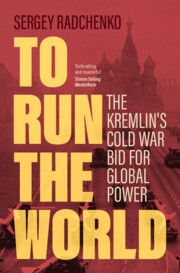15 - Decline
from Part III - Decline
Published online by Cambridge University Press: 30 May 2024
Summary
This chapter offers a snapshot of detente in a downward spiral, illustrating just how fragile it ultimately proved to be, how susceptible it was to the logic of superpower rivalry, and how utterly dependent it was on domestic variables – especially in the United States. With Nixon's resignation in August 1974, detente – never stable – began to unravel. Crises in Cyprus and Africa, as well as the passage of the Jackson-Vanik amendment, which effectively denied the Soviet Union its Most Favored Nation status and further dampened the already dim prospects for Soviet–American trade, aggravated tensions between Moscow and Washington. Even the successful conclusion of the Helsinki Conference in the summer of 1975 failed to restore trust between the superpowers. Brezhnev's physical and mental decline contributed to a sense of paralysis in Soviet foreign policy. The Cold War returned by default.
Keywords
- Type
- Chapter
- Information
- To Run the WorldThe Kremlin's Cold War Bid for Global Power, pp. 427 - 451Publisher: Cambridge University PressPrint publication year: 2024

